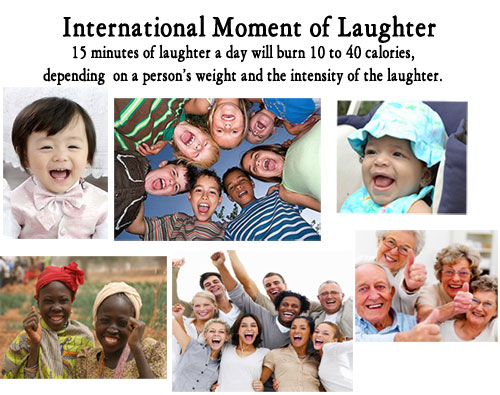Michael J. Fox with Muhammad Ali:
Living With Parkinson's
Nutrition and Parkinson's Disease
Kathrynne Holden is a registered dietitian who specializes in diet for Parkinson's disease (PD). Drawing on her former hospital experience, she has pioneered understanding of the unique nutrition needs of people with Parkinson's. Her aim is to provide the knowledge needed to prevent nutrition-related hospitalizations, make the best use of PD medications, and maintain an independent lifestyle.
“Some Parkinson medications can cause edema (a build up of fluid in the tissues,
often in the ankles, lower legs, and wrists). If you have edema, it’s important to get plenty of potassium in the diet, avoid too much salt and highly-processed
foods (potato chips, canned soups, pickles for example), and stay in
close touch with your physician.”
- Kathrynne Holden, MS, RD
Kathrynne Holden has written books and articles for the public, produced and has authored the professional's manual "PARKINSON'S DISEASE: Guidelines for Medical Nutrition Therapy." She has also developed the first nutrition risk assessment tools specific for PD. Kathrynne regularly speaks at Parkinson symposiums and conferences, and has conducted presentations in the United States, Canada, Australia, and the United Kingdom.
Research. Gerald C. McIntosh, M.D., Kathrynne E. Holden, M.S., R.D.: Risk for malnutrition and bone fracture in Parkinson's disease: a pilot study. Journal of Nutrition for the Elderly. Spring 1999; Vol. 18, No. 3.
Abstract. Conditions relating to Parkinson's disease include tremor, impaired balance, falls, constipation, food-medication interactions, and anorexia. Weight loss, bone thinning and muscle wasting are common, raising risk for malnutrition and bone fracture. This pilot study examines the lifestyle and dietary choices of 24 Parkinson's patients. Unplanned weight loss and falls were common, and most had multiple risk factors for malnutrition and fracture. Results support findings in previous studies and call for early nutrition intervention to help prevent fractures, muscle wasting, bowel impaction, and dehydration. The findings indicate that such intervention could prevent hospitalizations and related costs.
To learn more about the work of
Kathrynne Holden, MS, RD visit:
Review of the literature on
Nutrition and Parkinson's Disease
There is no special diet for people with Parkinson's disease. The nutritional goals include:
- Eat well-balanced meals.
- Consume adequate calories to maintain body weight within a normal range.
- Minimize food and drug interactions.
- If chewing, choking or excessive coughing becomes a problem, provide food consistency easily tolerated.
- Feeding may become difficult and a referral to an occupational therapist may be necessary for adaptive eating utensils.
Eat Well-Balanced Meals
Eat a variety of foods. Include foods rich in fiber, such as fruits, vegetables, whole grains, legumes, bran, cereals, rice and pasta. Limit intake of salt, sugar and foods high in saturated fats and cholesterol. Drink eight cups of water per day. Balance exercise and food in order to maintain your weight within a healthy range. Ask your doctor if alcohol will interfere with any of your medications.
Medication and Food Interactions
Medication used to treat Parkinson's disease may cause nausea. Let your doctor know if nausea is a problem. There are several ways to control nausea, including:
- Drink clear liquids, such as water, broth, fruit juices without pulp (apple juice, grape juice or cranberry juice), Clear sodas, sports drinks and plain gelatin.
- Avoid juices with pulp and orange and grapefruit juices.
- Eat and drink slowly.
- Beverages should be consumed between meals, not with the meal.
- Choose bland foods such as saltine crackers. Avoid greasy and fried foods.
- Eat smaller meals, more frequently throughout the day.
- Foods should be eaten cold or at room temperature.
- After eating keep your head elevated and avoid brushing your teeth.
Some medications for Parkinson's disease may cause thirst or dry mouth. Include 8 or more cups of liquid each day, unless other medical conditions require you to limit your fluid intake. Add sauces to foods to make them moister. Try sour candy or an ice pop to help increase saliva.
Malnutrition may become a problem for a person diagnosed with Parkinson's disease. This could be related to depression, nausea, difficulty feeding, problems with swallowing, chewing, coughing and/or a loss of interest in food.
Patients who experience swallowing difficulties should consult a physician. The doctor may recommend a swallow study to determine the food consistency best tolerated. If feeding becomes difficult, a referral to an occupational therapist may be necessary for adaptive eating utensils.
The Parkinson's Disease Foundation (PDF) is a leading national presence in Parkinsons disease research, education and public advocacy. PDF is working for the nearly one million people in the US who live with Parkinsons by funding promising scientific research and supporting people with Parkinsons, their families and caregivers through educational programs and support services. Since its founding in 1957, PDF has funded over $85 million worth of scientific research in Parkinsons disease, supporting the work of leading scientists throughout the world.





